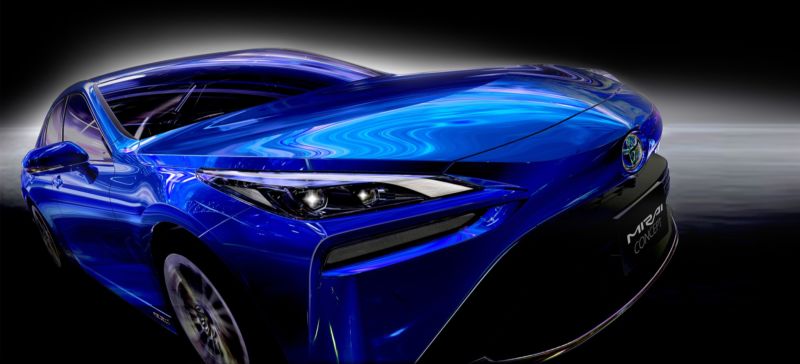
Enlarge / Toyota wouldn't let us take photos of the Mirai, but it shared these images. (credit: Toyota)
When Toyota announced the original Mirai hydrogen fuel cell electric vehicle in 2015—"Mirai" meaning "future" in Japanese—the company was already 18 years into its grand hybrid gambit, which had paid infinite dividends. The Prius and all the subsequent hybrids from Toyota did more to further the collective awareness of alternative-propulsion drivetrains than anything that had come before. This includes pure electric vehicles to that point in 2015, other hybrids, compressed natural gas experiments, and certainly far more than fuel cell technology. But that progress isn't stopping Toyota from driving further down the fuel cell path. The car maker just revealed the 2021 hydrogen fuel cell EV Mirai, which goes into production in late 2020. And we've got a sneak peek.
The total EV picture
But first, some background. Prius quickly became synonymous with hybrid electrics at a time when gasoline per gallon in the United States (as a national average) went from a low of $1 in 1998 to $2 in late 2004 before hitting about $3.25 in mid-2008 and peaking at about $3.60 in 2012. And sales of the Prius certainly weren't hurt when Hollywood fully embraced it. By 2018, 40% of all Toyotas sold in the US were hybrids. However, as of September 2019, only 2.4% of the total US market across brands are hybrids.
Meanwhile, less than 1% of the US market consists of battery EVs. Even though there is growth and visibility largely due to Tesla, BEVs face an uphill climb for several reasons.
Read 22 remaining paragraphs | Comments
No comments:
Post a Comment